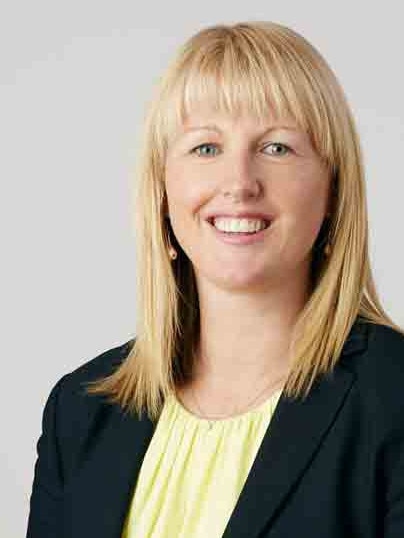Medibank doubles the number of staff who have work four days a week with no loss of pay
Australia’s biggest health insurer says more staff are “willing to go above and beyond” as part of a new program allowing staff to work four days per week with no loss of pay.

Medibank will double the number of employees who can work four days a week with no loss of pay, saying staff were more willing to “go above and beyond” after a six-month trial of the “gift day”.
Australia’s biggest health insurer partnered with Macquarie University to complete the study, which initially included 250 staff — including those working part-time and in customer facing roles, igniting one of the biggest changes to office work.
Medibank released the results of the trial late on Tuesday, reporting staff were “happier, healthier and more efficient” and would double the program’s intake to 500 workers.
The decision comes as more companies, including Amazon, Tabcorp, Flight Centre and the NSW government, are ordering staff back to the office, ending pandemic-era remote working — a move Medibank and Australia’s biggest telco Telstra are resisting.
Medibank head of people and sustainability Kylie Bishop said working four days instead of five delivered “positive results”, including sharpening employee focus.

“We’ve seen significant and sustained improvements in employee engagement, job satisfaction and the health and wellbeing of participants, while maintaining business performance and customer outcomes,” Ms Bishop said.
“The shortened week prompted a concentrated effort on planning and clearer alignment and agreement on outcomes and how the work is performed.”
After the six-month trial, Medibank reported staff were 4.5 per cent more satisfied with their job, with 6.7 per cent more engaged and willing to go “above and beyond”.
Ms Bishop said the “gift day” allowed staff to spend less time on “low value work”, including unnecessary meetings and “double handling”.
But, the biggest change was “work-to-family conflict” — the feeling of juggling family and work responsibilities — which dived 31.4 per cent.
Ms Bishop said it also made Medibank’s workplace healthier, with staff reporting a 29.9 per cent decline in sleep disturbances, a 17.5 per cent fall in unhealthy eating and a 16.3 per cent jump in overall health.
“Our four-day work week experiment is just one of the ways we’re innovating to drive greater autonomy in the workplace and support better decision making for customers,” Ms Bishop said.
“Australia is undergoing a health transition and Medibank has an enormous role to play. Our health system needs innovation, and we all need to move faster to respond. The key to this is transforming how we work.”
Other findings included improvements on psychological detachment — people feeling like they can switch off from work — which rose 10.4 per cent, while resilience firmed 9.2 per cent.
The trial was part of a world movement, 4 Day Week Global, an organisation founded by New Zealand entrepreneur Andrew Barnes, who made the switch at his financial services company, Perpetual Guardian, after a trial in 2018.
Ms Bishop said it involved a 100:80:100 model, where employees cut their work hours by 20 per cent but maintain existing productivity and pay levels.
Other Australian companies, including Telstra, NIB and Grant Thornton, have also either drafted plans involving shortened working weeks with no loss of productivity or cementing their shift to hybrid working, sparked during the Covid-19 pandemic.
But, the program has attracted criticism. Annie Dean, who heads Atlassian’s distributed work strategy, said the focus should be on output, not how many days an employee works or where they complete their work.
“I’m not a big proponent of the four-day work week,” Ms Dean said earlier this year, saying it gave the impression employees who wanted flexibility wanted to work less.
“For instance, by giving people back the opportunity to commute, you save five weekends per year — you’ve got a great opportunity to reinvest time. I don’t want it to seem like that, by suggesting employees deserve flexibility, that they’re asking to work less. And I think sometimes that message gets tied up in the four-day work week.”
Macquarie University’s Health and Wellbeing Research Unit and Macquarie Business School independently monitored Medibank’s trial, measuring a range of employee and customer metrics including customer advocacy and operational metrics like absenteeism and attrition, productivity and performance effectiveness.
Ms Bishop said the health insurer was determining which teams will join this next phase of the experiment.
“Medibank is applying a robust process to identify these next participants, working together with Four Day Week Global and Macquarie University about the ideal characteristics of these teams,” she said.






To join the conversation, please log in. Don't have an account? Register
Join the conversation, you are commenting as Logout